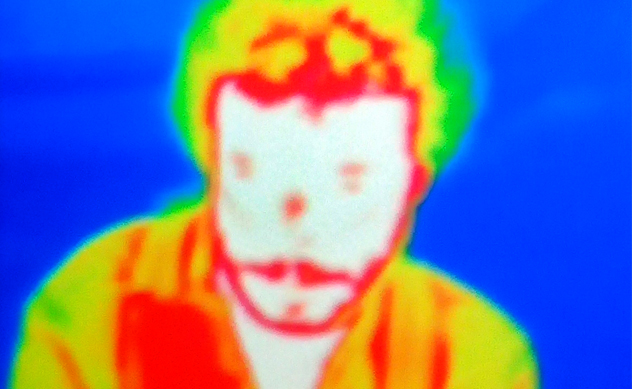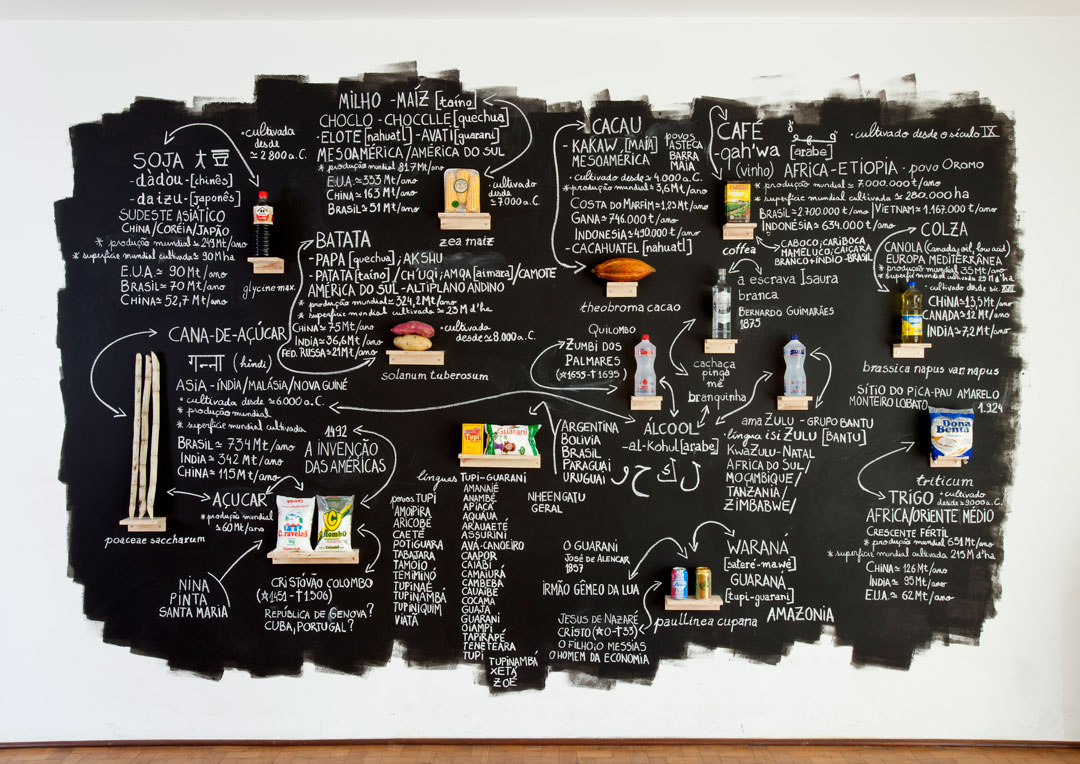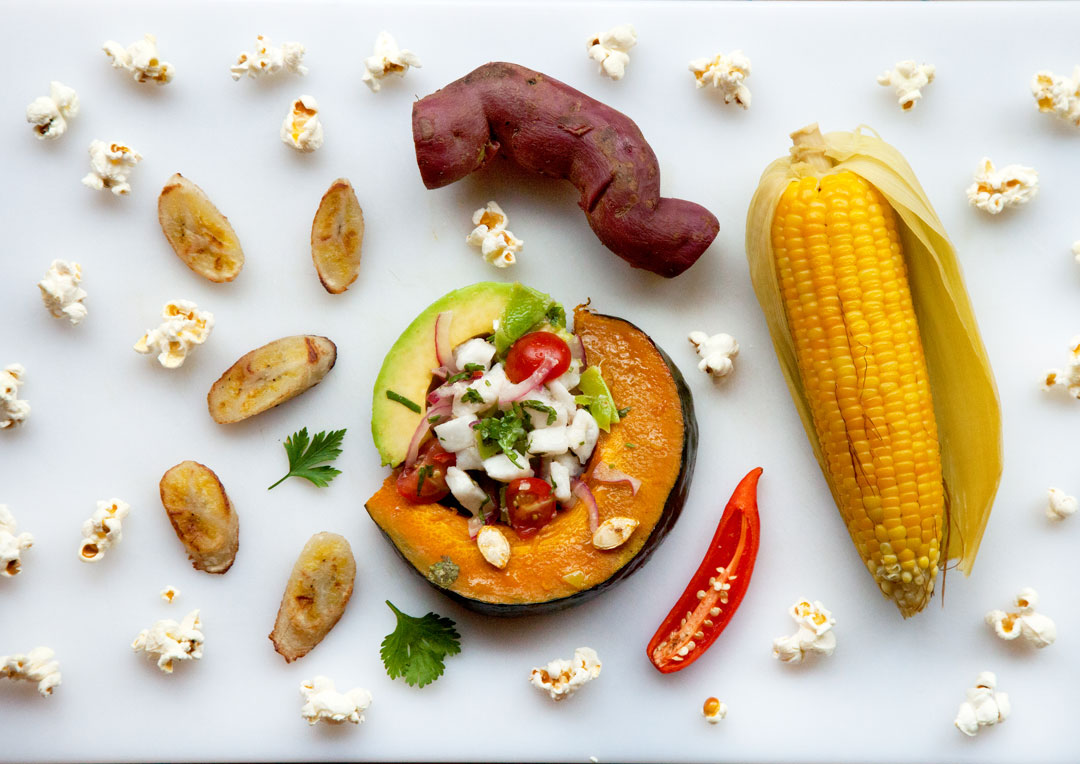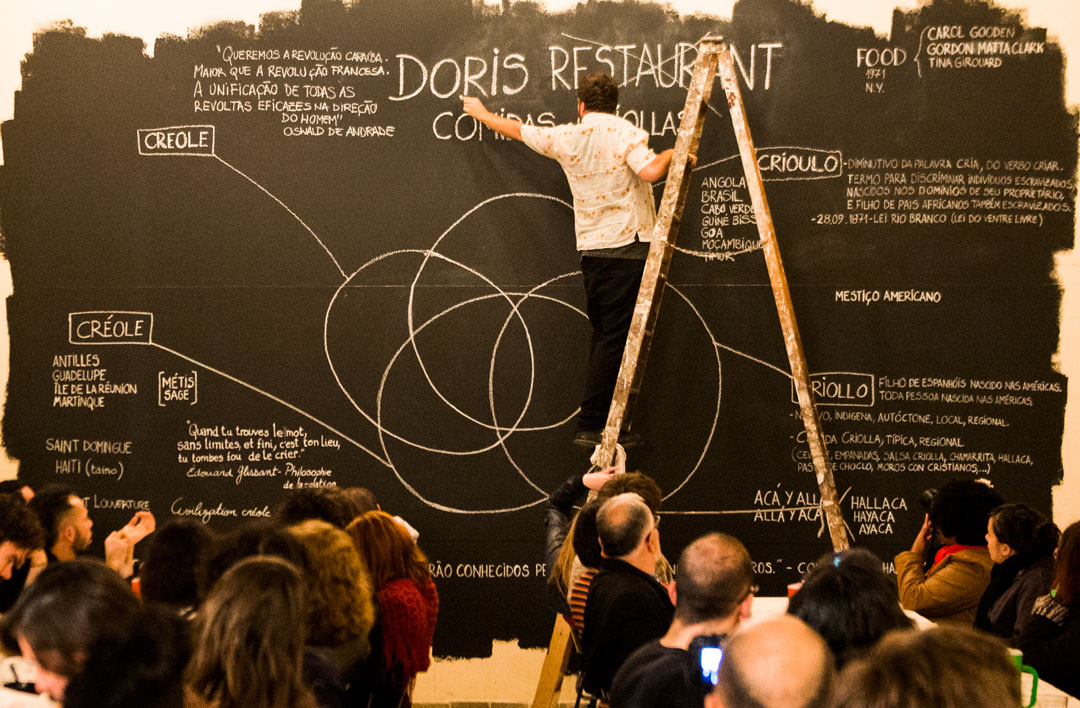Against a monoculture of thought
Against a monoculture of thought
Colonization is not over; it continues and is updated in contemporary times. We have remembered this in indigenous movements precisely because, in order to repair, it is first necessary to recognize. Our territories were invaded and violated in 1500 and continue to be so today. When I speak of territory, I am not referring only to rivers, woods, and forests. Our dreams, our subjectivation, and the way we relate to one another are also part of the territory of existence. In the same way that the land, of which we are also a part, can be reforested from the wounds that exploit it, our relational fabric can and should also be part of this reforestation.
Geni Núñez
Geni is of one of the leading emerging Indigenous voices in Brazil. They write on what Ailton Krenak has called “the monolithic imposition of a single world”, and expand that thinking to address how European ways of knowing the world have violently imposed destructive binary norms of monogamy, monotheism, monosexism—of faith, affection, sexuality and gender that have no meaning in many Indigenous worldviews. Geni’s thinking explores how, by removing the human from the centre of existence, we can understand that to be interdependent on other beings and to care for this network is to practice self-care, and that by positioning oneself against monocultures is to affirm the principle of the forest, whose essential characteristic is precisely the possibility of concomitance, diversity and singularity.
Also join Geni Núñez in conversation with Ailton Krenak, Denise Ferreira da Silva and Leanne Betasamosake Simpson at More than Perfect on Friday 15 November.
ReadBio
Geni Núñez is an indigenous Guarani and queer activist, psychologist and writer. She is currently a Postdoctoral researcher at the Institute of Advanced Studies at the University of São Paulo (USP). They have a doctorate in the Interdisciplinary Postgraduate Program in Human Sciences from the Federal University of Santa Catarina (UFSC), where they also completed a master’s degree in Social Psychology and a degree in Psychology. They are a member of the Human Rights Commission (CDH) of the Brazilian Federal Psychology Council (CFP) and the Guarani Yvyrupa Commission (CGY).
Amilcar Packer was born in Santiago de Chile, 1974, and lives and works in São Paulo, Brazil, since 1982. Packer unfolds an experimental and non-disciplinary art and collaborative research-based practice, informed by curatorial and editorial operations, in view of transformative social justice. His work seeks to intervene in artistic, political and social imaginaries by the means of mid and long-term public programs, presentations and debates, workshops, study groups, online platforms and archives, research trips, and editing, translation and free distribution of texts and publications (printed and online). He graduated in Philosophy at USP (1999), has a MA in Clinical Psychology at PUC-SP (2015), and is currently enrolled in a PhD at the Gender, Race, Sexuality and Social Justice, at the University of British Columbia.
As a curator, he organized exhibitions in institutions such as the Centre Rhénan d’Art Contemporain (Altkirch, France, 2022/2023), Museu de Arte Moderna da Bahia (Salvador 2018), Centro de Arte Hélio Oiticica (Rio de Janeiro, Brazil, 2017/ 18), Ludlow 38, New York, USA; He co-organized artistic-curatorial initiatives and platforms such as Ventres da Mata Atlántica (2018) and EhChO (2020/2022), and was co-director of the artistic residency program CAPACETE, Rio de Janeiro, Brazil between 2012/2013.
As an artist, he has participated in group shosw such as: “Abduction” (Oslo, Norway, 2020), “Incerteza Viva – 32nd São Paulo Biennial (2016); “Modifiy as Needed”, MOCA, Miami, USA. (2011); “Práxis: Art in Times of Uncertainty – 2nd Thessaloniki Biennale of Art” (Thessaloniki, Grécia, 2009); “Farewell Postcolonialism – 3rdGuangzhou Triennial, China (2008); “On Reason and Emotion”, 14th Sydney Biennale, Australia (2004).
Part of his practice takes place in educational and art mediation programs at institutions such as The Royal Danish Academy of Fine Arts, Copenhagen, Denmark (2024; 2023; 2022; 20217); ENSBA, Paris, France (2013); “History Matter” (2012), CCA-Lagos, Nigeria; Hobart and Launceston Schools of Arts, Tasmania, Australia; “1st Pernambucan Week of the Arts” (2001), Recife, Brazil.
Documentation
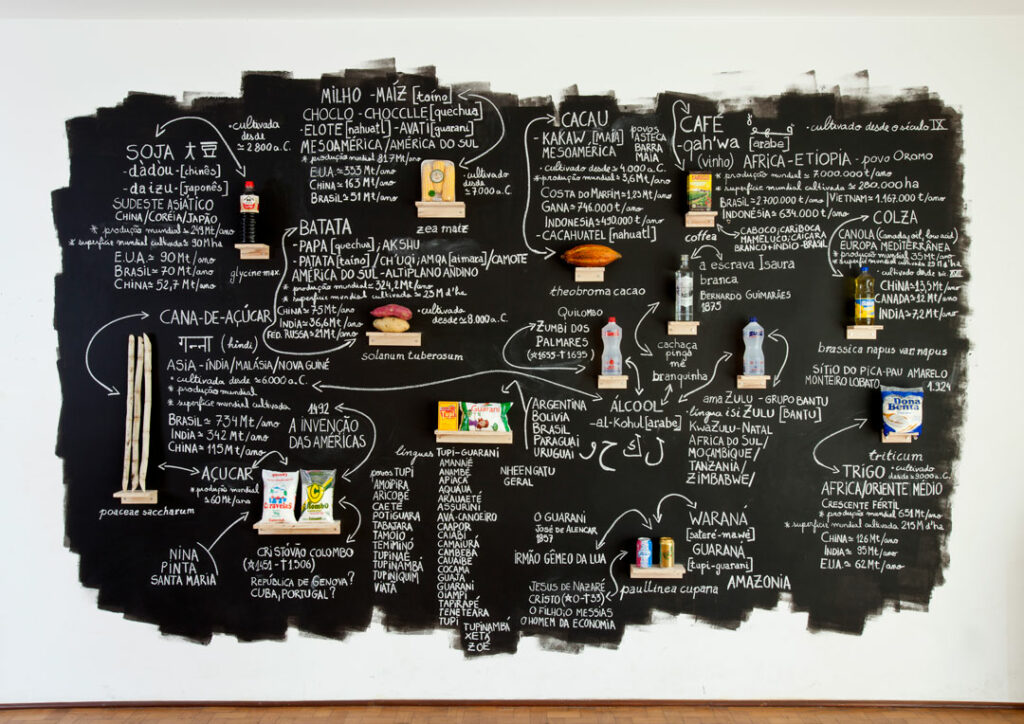
▴ Mapaisagem, Installation, 2013, Credit: Amilcar Packer
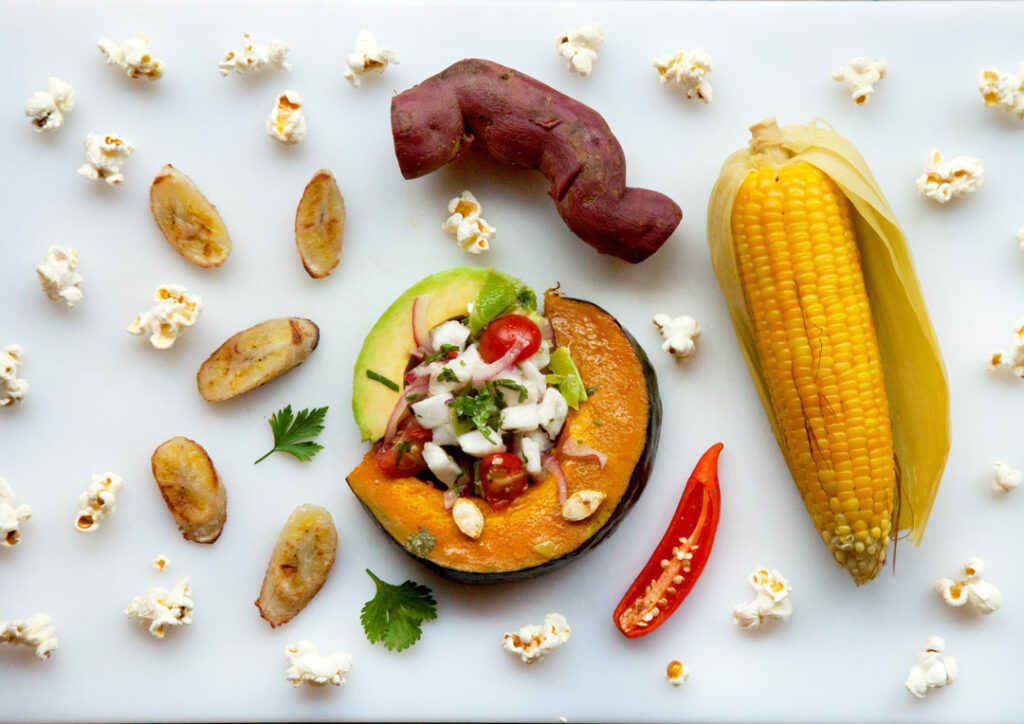
▴ Doris Criolla, poster with ceviche for the exhibition “Boa sorte com os vossos esforços naturais, combinados, atrativos e verdadeiros em duas exposições”, at Fundação Eugênio de Almeida, Évora, Portugal, 2017., Credit: Amilcar Packer
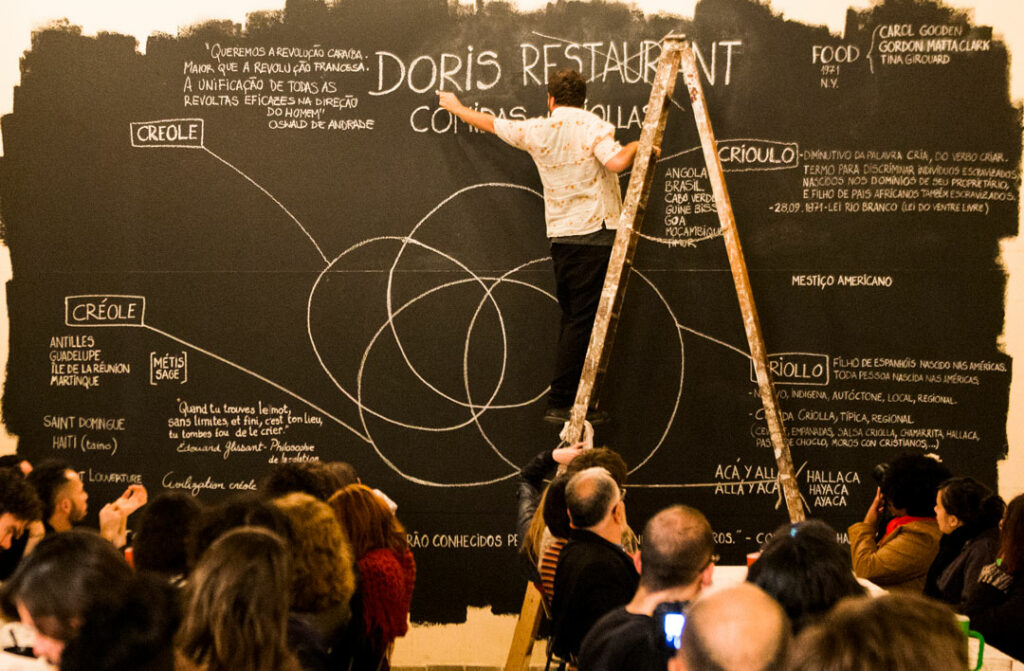
▴ Session of Doris Criolla for “Nossa Voz Joural” at Oficina Cultural Oswald de Andrade in collaboration with with Casa do Povo, São Paulo, Brazil, 2014.
Access
Live Captions
Live Stream
See general Access information for Episode 11: To End the World As We Know It event
Artists
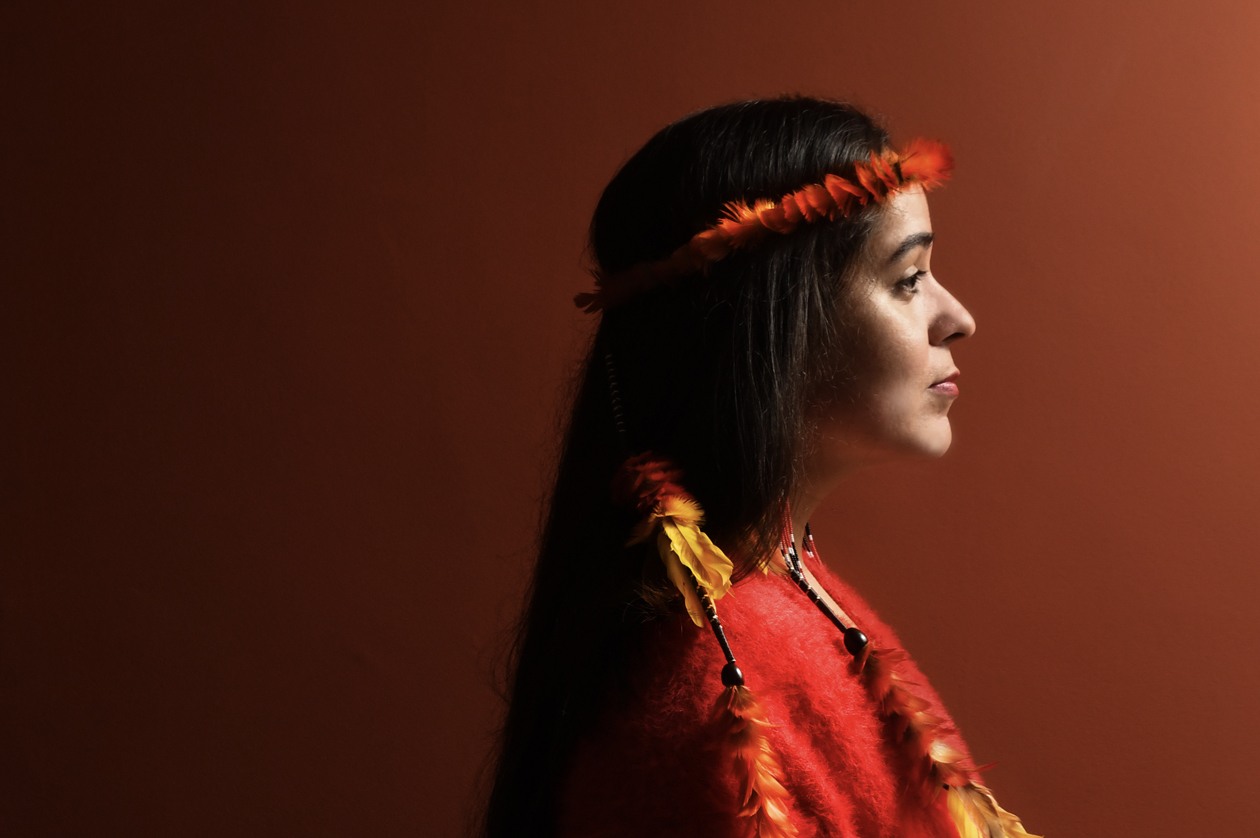
Geni Núñez
